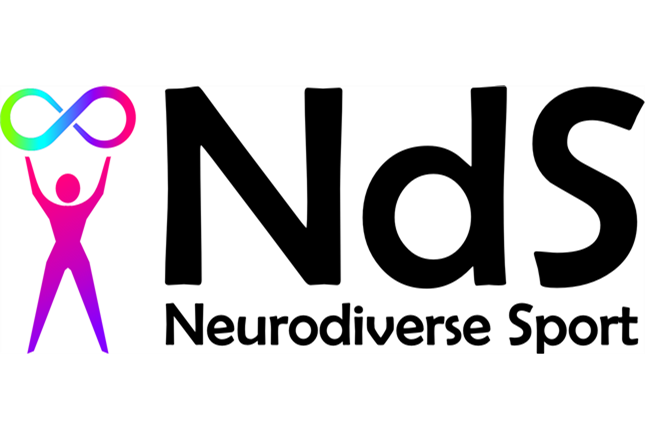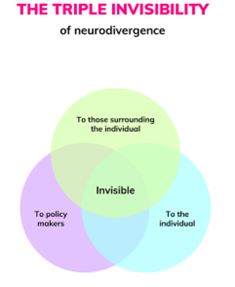
This week (18-24 March) is Neurodiversity Celebration Week, and the Alliance want to highlight the work of Neurodiverse Sport, an organisation that aims to promote all neurodiversity at every level of sport.
We spoke to founder of Neurodiverse Sport, Caragh McMurtry, to find out more about the work they do, to get a better understanding of neurodiversity and how other sport organisations can adapt their practices to ensure that their sport is inclusive for neurodivergent individuals.
What is Neurodiversity Celebration Week?
Neurodiversity Celebration Week was established in 2018 by Siena Castellon whose own negative educational experiences inspired her to confront the misconceptions and stereotypes that hinder many neurodivergent individuals from realising their full potential. It now serves as a platform for neurodivergent individuals and their allies to promote a more inclusive and supportive society with the mission being to increase acceptance and understanding, provide education and ultimately, celebrate neurodiversity.
Who are Neurodiverse Sport?
Neurodiverse Sport was founded in 2022, by former Olympic rower Caragh McMurtry and her husband Michael Motram, in response to their mixed experience of sport as neurodivergent people. Their vision is for neuroinclusive practice to become the norm in all sport, at every level. Neurodiverse Sport provides workshops and consultation to sports teams and organisations regarding neuroinclusivity in sport.
The word neurodiverse refers to the natural variation of human neurology and behaviour traits, with neurodivergent referring to those who sit further from ‘the norm’. A neurodivergent individual might have a condition such as Autism, ADHD, Dyslexia or Dyspraxia, but many individuals will not have a diagnosis, and many more will have overlapping characteristics. Because of this, Neurodiverse Sport aims to educate coaches and support staff on how to work with diverse individuals as opposed to labels.
Neurodiversity is unique in that it presents a so called “triple invisibility” which describes the difficulty posed by the invisible nature of neurodiverse conditions or characteristics:
The triple invisibility of neurodivergence is one reason why events such as neurodiversity celebration week and organisations such as Neurodiverse Sport are incredibly valuable in moving this space forward.

As well as looking beyond labels, Neurodiverse Sport seeks to promote individual strengths as well as stretches (struggles). For too long, neurodivergence has been viewed and diagnosed purely through a deficit lens - this is referred to as the medical model of disability or difference. The neurodiversity movement empowers neurodivergent people and embraces the social model of disability/difference. Where the medical model sees the individual as a problem to be fixed, the social model highlights the barriers that attitudes and environments can present. The onus for change and adaptation is therefore shared, and the outcome for neurodivergent people much more positive.
How can organisations promote inclusion and support for individuals with neurodiverse conditions within their sports initiatives?
To promote inclusion within your organisation, Neurodiverse Sport have outlined some very clear first steps you can take. Firstly, raise awareness and combat stereotypes - it’s often those negative stereotypes that prevent individuals from engaging, disclosing or seeking support. Secondly, celebrate the unique strengths that can come with neurodivergence - everyone needs to feel respected, appreciated and valued for their unique contributions. Thirdly and lastly, be prepared to signpost - you don’t need to be an expert, but being open minded and prepared with some resources to direct people towards will go a very long way.

Neurodiversity is not and should never be seen as a barrier to success, in life and in sport. Some of the most decorated athletes of this generation, including Jessica Jane Applegate, Michael Phelps and Simone Biles, are members of the neurodiversity community and smash any perceptions that neurodivergence is in and of itself disabling.
If you are eager to learn more about how to make your sports team or organisation more neuroinclusive, visit www.neurodiversesport.com, and consider booking a workshop.
It is with immense sadness that the Sport and Recreation Alliance learned of Andy Sutch’s passing last week, and we send our deepest condolences to Andy’s family and friends.
Read moreThis afternoon, the Chancellor delivered her Budget speech to Parliament, outlining decisions on tax and spending.
Read moreAhead of the Chancellor’s Budget statement on 26 November, we take a look a look at the key areas to be aware of and the work the Alliance has been doing lobbying on behalf of members.
Read moreJoining the Sport and Recreation Alliance is pretty simple, but worthwhile!
Register now